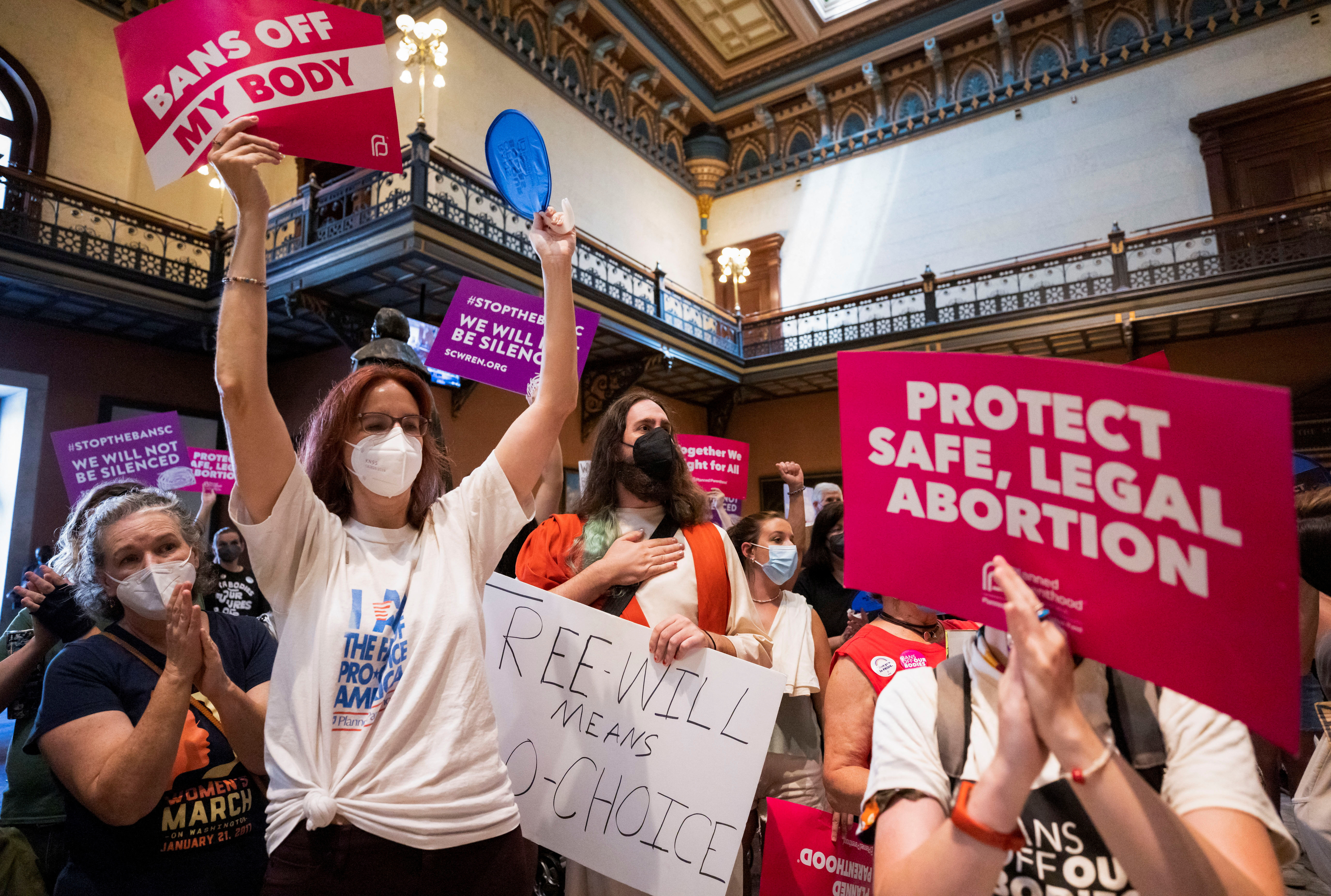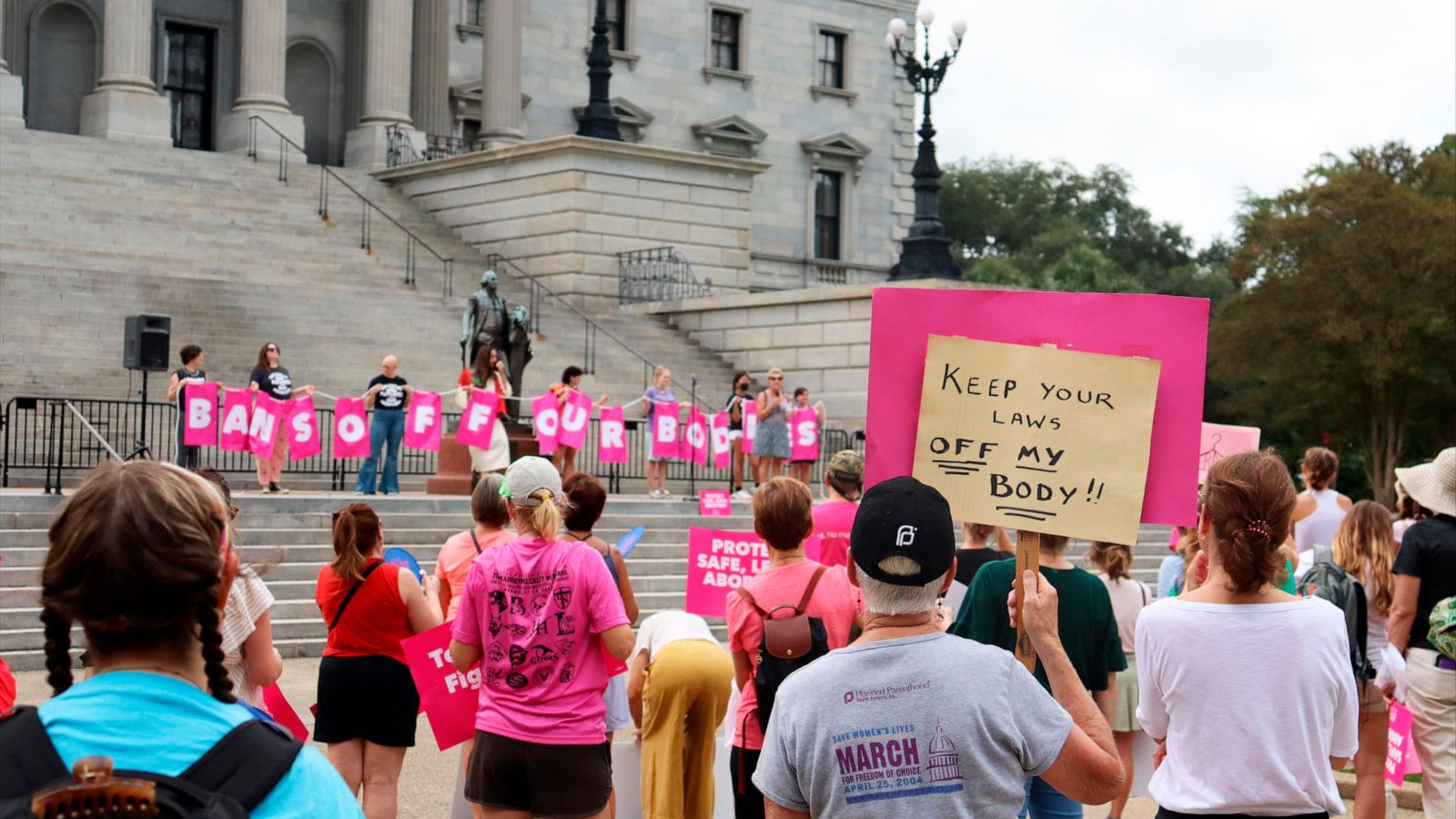 Protesters gather inside the South Carolina House as members debate a new near-total ban on abortion with no exceptions for pregnancies caused by rape or incest at the state legislature in Columbia, South Carolina, U.S. August 30, 2022. REUTERS/Sam Wolfe
Protesters gather inside the South Carolina House as members debate a new near-total ban on abortion with no exceptions for pregnancies caused by rape or incest at the state legislature in Columbia, South Carolina, U.S. August 30, 2022. REUTERS/Sam Wolfe
Jan 5 (Reuters) – South Carolina’s Supreme Court on Thursday ruled that a state law banning abortion after about six weeks of pregnancy was unconstitutional because it violated a right to privacy, handing a major win to abortion rights supporters in the U.S. South.
Hours later, Idaho’s Supreme Court found that the constitution in that state did not protect a right to abortion, drawing the opposite conclusion in a similar case challenging the state’s restrictions on pregnancy termination.
The rulings were significant milestones in the legal battle over abortion rights that has been playing out in states since the U.S. Supreme Court in June eliminated a nearly 50-year-old federal right to abortion by overturning the Roe v. Wade decision.
In conservative states such as Idaho and South Carolina, which both quickly moved to ban abortion after the U.S. Supreme Court decision, the future of abortion access could rest on how judges interpret state constitutions.
In South Carolina’s 3-2 ruling, Justice Kaye Hearn wrote that the “state constitutional right to privacy extends to a woman’s decision to have an abortion.”

Hearn said that while the state could set some limits on abortion, any regulation on privacy in regards to the procedure should give a woman “sufficient time to determine she is pregnant and to take reasonable steps to terminate that pregnancy.” Six weeks was “not a reasonable period of time” after which to ban abortion, Hearn said.
The gestational limit on abortion in South Carolina is now 22 weeks, the Center for Reproductive Rights said.
The president of Planned Parenthood’s South Atlantic affiliate, Jenny Black, called the decision “a monumental victory in the movement to protect legal abortion in the South.” Many states neighboring South Carolina have banned abortion in most cases.
South Carolina Attorney General Alan Wilson said his office was working with the governor and legislative leaders on next steps. “We respectfully, but strongly, disagree with the Court’s ruling,” he said.
Idaho’s Supreme Court said the state constitution did not contain explicit or implicit protections for abortion rights, ruling against Planned Parenthood in a case challenging that state’s abortion bans.

In a 3-2 decision, the court ruled that there was rational basis for certain state laws. These included one that totally bans abortion, which makes providing the procedure a felony, and another that forbids abortion after six weeks. The latter, modeled on a Texas law enacted in September 2021, allows citizens to enforce it by filing lawsuits.
The decision on Thursday allows those laws to remain in effect.
“Each of these laws is constitutional because it is rationally related to the government’s legitimate interest in protecting prenatal fetal life at all stages of development, and in protecting the health and safety of the mother,” Justice Robyn Brody wrote in the majority opinion.
Source: reuters.com








